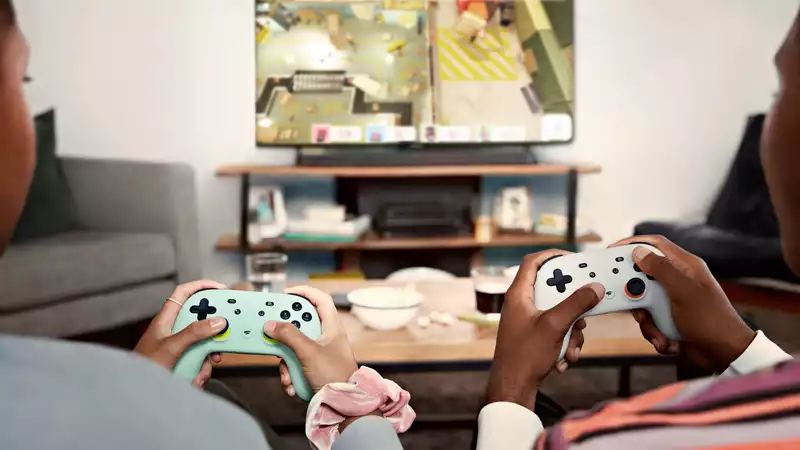Samsung Adds Cloud Gaming Capabilities to TVs The Samsung Gaming Hub, announced at CES 2022, supports both Google Stadia, Utomik, and Nvidia GeForce Now, allowing TV buyers to jump into console-quality gaming with just an Internet connection. Current Samsung TV owners are out of luck, as the Samsung Gaming Hub is only available on select Samsung 2022 TVs.
Samsung is not the first TV maker to go this route; LG added both GeForce Now and Stadia late last year, and the Fire TV comes with Amazon Luna. Sony's Bravia TVs at one point included PlayStation Now, but this feature was removed in 2017. However, given that new Sony TVs are shipping with Google TV, Stadia support will likely come soon.
Without ISP data caps, this would mean that the future of game TV is coming in 2022, as predicted by analysts. Just a month ago, Jesse Divnich, vice president of research and strategy at Interpret, told USA Today that in 10 years console games "will be known as video games, or big-screen games."
"Cloud streaming will almost certainly reach a point where it can provide a seamless experience for all types of games," Divnich added.
"There will always be traditionalists who would prefer to have a physical device at home, but most consumers will adopt cloud streaming as a means of accessing games.There is still a ways to go before TVs will be considered de facto consoles. Streaming games requires huge amounts of bandwidth and fast ping. Many areas of the U.S. do not have high-speed Internet, and some ISPs, such as Xfinity, impose a 1.2 TB data cap on consumers
.
This cap is not small; according to Android Authority, one hour of 4K game streaming via Google Stadia consumes 25 GB of data.
Game streaming has not reached the level that Divnich predicts it will in eight years, but with PS5 inventory still extremely limited more than a year after its release, it is a great option for those who do not want to spend $500 for a PS5.
For those who want to play the best games of 2021, including Marvel's Guardians of the Galaxy, Resident Evil Village, and Hitman 3, game streaming is a nearly frictionless way to jump in. And for most consumers, it is that friction that prevents them from diving into games in the first place.
I remember in one of my graduate courses, a professor admitted that the reason he didn't pay much attention to games was because he had to buy a console or PC up front. As someone who was heavily involved in entertainment criticism of film and literature, I can understand why she didn't want to put too much effort into finding a gaming console. But if all she had to do was push a controller and a TV remote, she and many others could potentially take on high-quality AAA games. And that prospect alone should get anyone excited about what game streaming could mean for the larger entertainment market.
Suddenly, game creators will no longer be limited to consoles and PCs. The potential pool of consumers will expand to everyone who owns a modern TV. Of course, that may mean that extra shovelware will be sent to Samsung TVs, but it also means that games that were accessible to only 100 million console owners may become accessible to a billion. If game creators can tap into such a large market, games will become more ambitious and diverse.










Comments